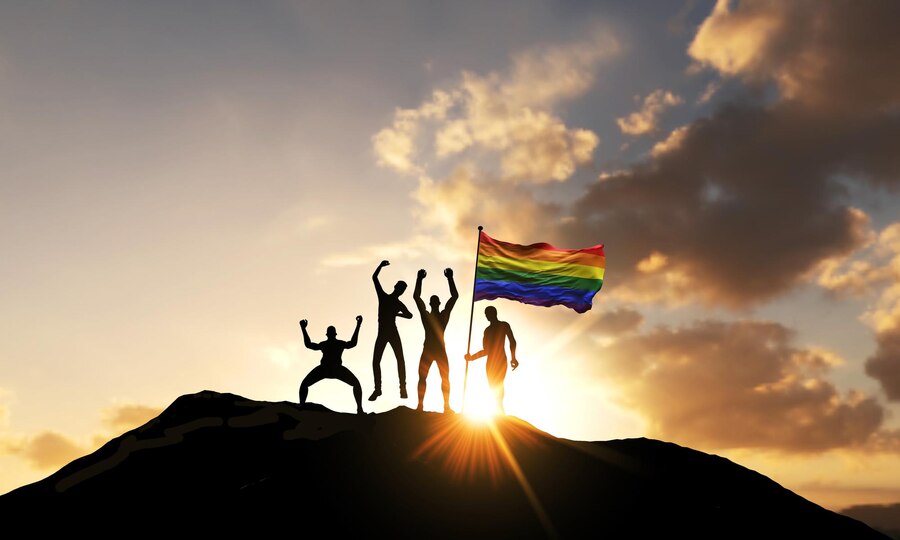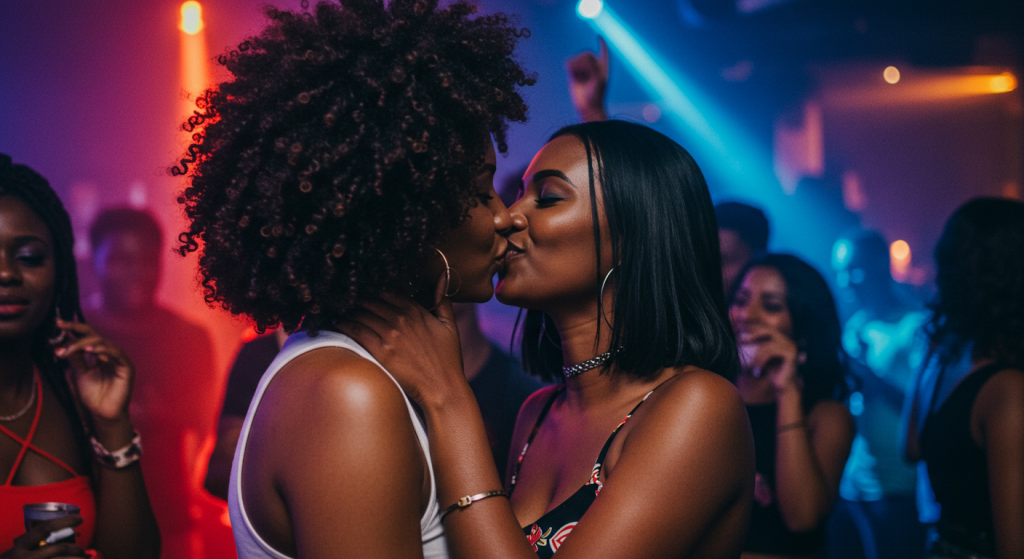Is Kenya Safe for LGBTQ? A Comprehensive Look at LGBTQ Safety in Kenya
Kenya, with its stunning landscapes, diverse wildlife, and rich cultural heritage, has long been a favorite destination for travelers from around the world. However, for LGBTQ individuals, the question of safety looms large when considering a visit to this East African nation. In this article, we’ll delve deep into the complex issue of LGBTQ safety in Kenya, examining the legal, social, and cultural factors that impact the LGBTQ community in the country.
Understanding the Legal Landscape
To fully grasp LGBTQ safety in Kenya, it’s crucial to first understand the legal framework surrounding LGBTQ rights in the country. Kenya’s legal system, like many in Africa, still retains laws from its colonial past that criminalize same-sex relations.
The Kenyan Penal Code, specifically Sections 162, 163, and 165, outlines penalties for “carnal knowledge against the order of nature” and “gross indecency.” These vaguely worded laws are often interpreted to criminalize homosexuality, with potential punishments including imprisonment for up to 14 years.
It’s important to note that these laws primarily target sexual acts rather than LGBTQ identity itself. However, their existence creates an environment of legal uncertainty that significantly impacts LGBTQ safety in Kenya.
Recent Legal Developments
In recent years, there have been efforts to challenge these discriminatory laws. In 2019, Kenya’s High Court heard a case seeking to decriminalize consensual same-sex relations. However, in a disappointing setback for LGBTQ rights advocates, the court upheld the existing laws.
Despite this setback, the very fact that such a case was heard represents progress in the ongoing struggle for LGBTQ safety in Kenya. It demonstrates a growing willingness to engage with these issues in the legal arena, even if change is coming slowly.
Social Attitudes and LGBTQ Safety in Kenya
While legal frameworks are important, social attitudes play an equally crucial role in determining LGBTQ safety in Kenya. Understanding these attitudes provides valuable context for LGBTQ individuals considering travel to or residence in Kenya.
Generally speaking, Kenyan society remains largely conservative when it comes to LGBTQ issues. A 2019 survey by the Pew Research Center found that only 14% of Kenyans believed homosexuality should be accepted by society, one of the lowest acceptance rates globally.
These attitudes are influenced by a variety of factors, including:
1. Religious beliefs: Kenya is a predominantly Christian country, with many religious leaders vocally opposing LGBTQ rights.
2. Traditional cultural values: Many traditional Kenyan cultures place a high value on heterosexual marriage and procreation.
3. Lack of visibility: Due to safety concerns, many LGBTQ Kenyans remain closeted, leading to a lack of visible LGBTQ role models in society.
4. Misinformation: Myths and stereotypes about LGBTQ people continue to circulate, often unchallenged due to limited public education on these issues.
These social attitudes significantly impact LGBTQ safety in Kenya, often leading to discrimination, social ostracism, and in some cases, violence against LGBTQ individuals.
LGBTQ Safety in Kenya: Urban vs. Rural Areas
When discussing LGBTQ safety in Kenya, it’s important to recognize that experiences can vary greatly depending on location. Generally, urban areas, particularly the capital city Nairobi, tend to be more tolerant and offer more resources for the LGBTQ community.
In Nairobi, there are several LGBTQ-friendly spaces and organizations working to promote LGBTQ rights and provide support services. These include the Gay and Lesbian Coalition of Kenya (GALCK) and the National Gay and Lesbian Human Rights Commission (NGLHRC).
However, even in urban areas, discretion is often necessary to ensure LGBTQ safety in Kenya. Public displays of affection between same-sex couples are not common and may attract negative attention.
In rural areas, LGBTQ safety in Kenya can be more precarious. Traditional values tend to be more entrenched, and there are fewer support systems available for LGBTQ individuals. Many LGBTQ people from rural areas migrate to cities in search of greater acceptance and community.
Health and LGBTQ Safety in Kenya
Access to healthcare is an important aspect of LGBTQ safety in Kenya. While Kenya has made significant strides in HIV/AIDS prevention and treatment, stigma and discrimination can still act as barriers to healthcare for LGBTQ individuals.
Some healthcare providers may hold discriminatory attitudes, making it difficult for LGBTQ people to access appropriate care. However, there are organizations working to address this issue. For example, ISHTAR-MSM provides health services specifically for men who have sex with men (MSM) in Nairobi.
LGBTQ Safety in Kenya for Travelers
For LGBTQ travelers considering a visit to Kenya, it’s essential to be aware of the legal and social landscape. While many LGBTQ travelers visit Kenya without incident, it’s important to exercise caution and respect local laws and customs.
Here are some tips for LGBTQ travelers to enhance their safety in Kenya:
1. Research thoroughly: Before your trip, research the current situation regarding LGBTQ safety in Kenya. Laws and social attitudes can change, so ensure you have up-to-date information.
2. Be discreet: Public displays of affection between same-sex couples are not common in Kenya and may attract negative attention.
3. Choose accommodations wisely: Look for LGBTQ-friendly or at least LGBTQ-tolerant accommodations, particularly in urban areas.
4. Connect with local LGBTQ organizations: These groups can provide valuable information and support during your stay.
5. Be cautious with dating apps: While dating apps are used by some LGBTQ Kenyans, be aware that they have been used in the past to target LGBTQ individuals.
6. Respect local customs: While you shouldn’t have to hide your identity, being mindful of local sensitivities can help ensure your safety.
7. Have emergency contacts: Keep contact information for your embassy and local LGBTQ support organizations handy.
Ongoing Efforts to Improve LGBTQ Safety in Kenya
Despite the challenges, there are ongoing efforts to improve LGBTQ safety in Kenya. Local and international organizations are working tirelessly to advocate for LGBTQ rights and provide support to the community.
Some key initiatives include:
1. Legal advocacy: Organizations like the National Gay and Lesbian Human Rights Commission continue to challenge discriminatory laws in court.
2. Public education: Efforts are being made to educate the public about LGBTQ issues and combat misinformation.
3. Health initiatives: Programs aimed at improving healthcare access for LGBTQ individuals, particularly in relation to HIV/AIDS prevention and treatment.
4. Community building: Creation of safe spaces and support networks for LGBTQ Kenyans.
5. International pressure: Global human rights organizations continue to advocate for LGBTQ rights in Kenya and other countries with discriminatory laws.
These efforts, while facing significant obstacles, are slowly but surely making progress in improving LGBTQ safety in Kenya.
Conclusion
The question “Is Kenya safe for LGBTQ?” doesn’t have a simple yes or no answer. LGBTQ safety in Kenya is a complex issue influenced by legal, social, and cultural factors. While significant challenges remain, including discriminatory laws and conservative social attitudes, there are also signs of progress and a growing movement for LGBTQ rights in the country.
For LGBTQ Kenyans and travelers alike, navigating this landscape requires caution, awareness, and often, discretion. However, it’s also important to recognize the courage and resilience of Kenya’s LGBTQ community, who continue to advocate for their rights and create spaces of acceptance and support.
As global attitudes continue to evolve and advocacy efforts persist, there’s hope for continued improvement in LGBTQ safety in Kenya. In the meantime, staying informed, connecting with local LGBTQ organizations, and prioritizing personal safety are crucial for LGBTQ individuals living in or visiting Kenya.
Remember, every individual’s experience is unique, and while this article provides a general overview, it’s always advisable to seek the most current information and personal accounts when assessing LGBTQ safety in Kenya or any other destination.








